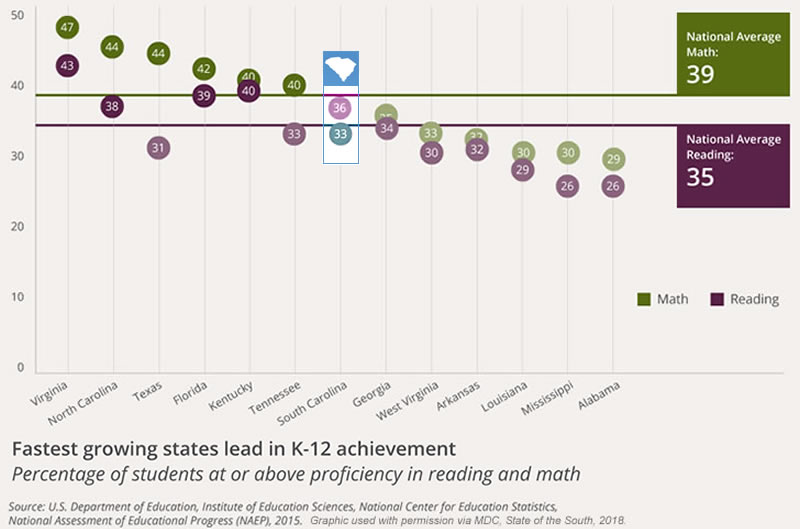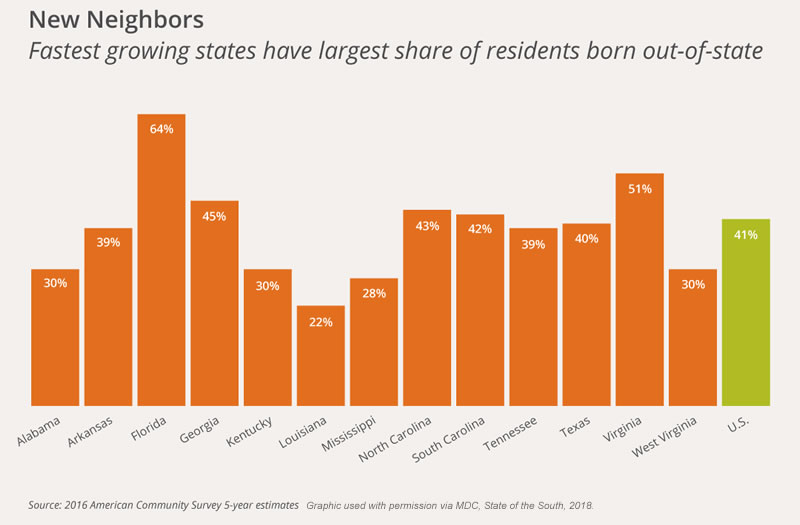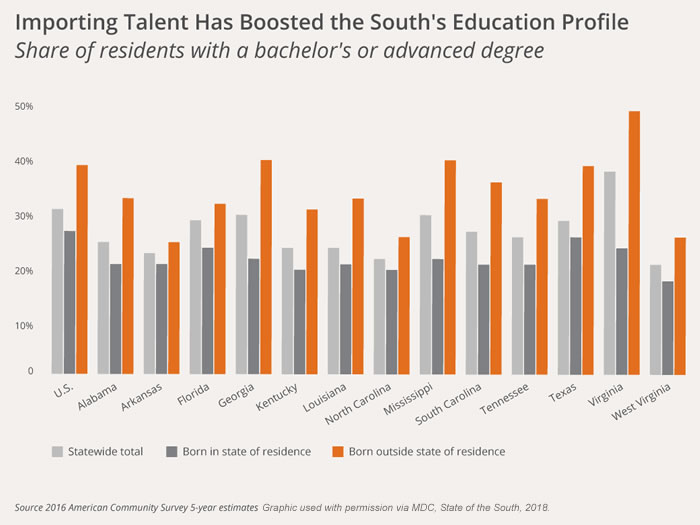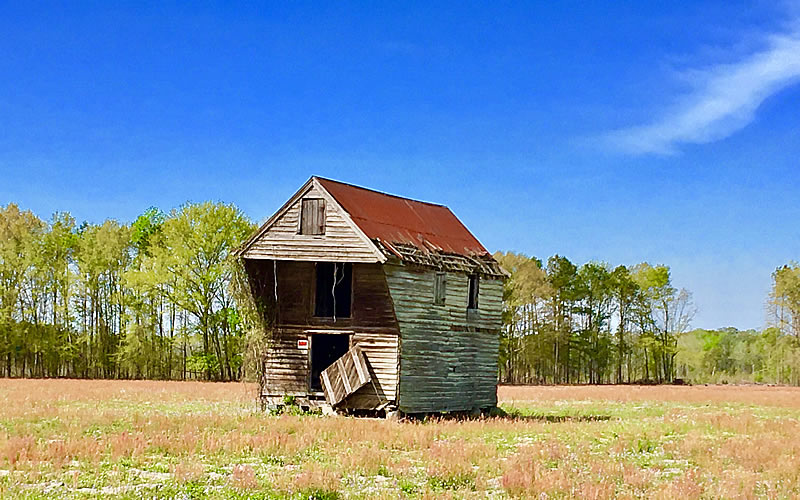INSIDE ISSUE 17.15 | APRIL 13, 2018
NEWS: First utility reform bill on cusp of becoming law
BRIEFS: Senate approves its version of the state budget
CALENDAR: Conservation bank bill still in legislative throes
COMMENTARY, Brack: If you want prosperity, you’ve got to invest to build talent
SPOTLIGHT: S.C. Hospital Association
MY TURN, Haynes: Disappointed in legislature over solar bill shenanigans
FEEDBACK: Send us your thoughts
MYSTERY PHOTO: This one might look familiar
S.C. ENCYCLOPEDIA: Yellow jessamine
NEWS: First utility reform bill on cusp of becoming law

By Lindsay Street, Statehouse correspondent | As the state’s annual legislative session enters its final weeks, zero bills tied to the $9 billion debt incurred on the backs of ratepayers for a shuttered nuclear project have been signed into law.
But that could change next week as the Senate takes up House amendments for a bill that would reduce rates for South Carolina Electric & Gas customers and increase powers of the state’s public utility authority. The bill has already passed both chambers in slightly different forms. Its backers say they hope a compromise will make it to the governor’s desk in the coming weeks.
Still, utility reform advocates and some lawmakers are bemoaning the “all nuclear, all the time” session as particularly disappointing. They hoped more would be done to reform the state’s energy climate, but point to a session replete with machinations by special interests and the lobbying effort by “big utilities.” Others counter by saying the legislature is being appropriately cautious in meddling with a complicated issue.
Pulling the plug
In 2017, state-owned utility Santee Cooper pulled the plug on a project to bring two nuclear reactors online in Jenkinsville. The decade-long construction project was in joint partnership with South Carolina Electric & Gas, owned by SCANA in Cayce. The project was bankrolled, in part, by a 2007 law that has allowed utilities to raise rates to pay for construction of capital projects.
The nuclear reactors’ construction had huge cost overruns and its partners decided incurring further expense was not worth finishing the reactors. Since that time, lawmakers — mostly in the House where members are up for reelection — have pushed to rollback rates on ratepayers, increase utility oversight, consider privatization of Santee Cooper, and determine whether a private utility sale is in the best interest of customers.

“The disappointing thing is while everything took a backseat to utility reform, which it should, that would be O.K. if we had passed something but we passed nothing. Nothing has been signed into law,” said S.C. Sen. Mike Fanning, D-Fairfield. He represents the area where the V.C. Summer plant is located.
Fanning called the canceled project “the biggest fiasco in the history of the state.”
The S.C. Coastal Conservation League (SCCCL) is one of the organizations that has pushed hard for change, only to come up short.
“We have been watching bill after bill get slow-walked or killed outright despite the $9 billion that ratepayers are being charged for to get nothing. You would think this was going to be a year where reform had a chance,” SCCCL Energy and Climate Program Director Eddy Moore said. “At some basic level there should be a change in the law. If we took a $9 billion hit and they couldn’t find any improvement in the law that needed to be made, then we’re in trouble.”
Fanning and Moore fingered utility lobbying and public messages that have kept big changes from coming in the state. But Mike Couick, president and CEO of The Electric Cooperatives of South Carolina, said slow progress is a result of lawmakers being “mindful of not doing the wrong thing.”
S.C. Sen. Brad Hutto, an Orangeburg Democrat who has filibustered one reform bill, said lawmakers like him are “absolutely not” in the pocket of big utilities.
“Nobody likes the situation we’re in,” he said. “I don’t like the situation we’re in. But just because bad decisions were made … doesn’t mean you don’t follow the law.”
‘Very modest’ reform
Hutto is particularly vexed by the bill, S. 954, that stands the best chance of being passed before the session ends next month.

“There’s a process set up for setting rates in South Carolina, adjusting rates in South Carolina, for mergers — and I don’t think we should be putting our fingers on the scale and we should let the process take its course,” he said.
Fanning, who is a cosponsor of the bill, called it “very modest” in terms of reform. The bill seeks to reduce the increased rates from 18 percent to 5 percent, and it would give the S.C. Public Service Commission subpoena power and give the commission more time to review projects. He said the bill was scheduled after the Senate completed deliberations on the budget to give it the best chance possible of passing.
While Fanning and Moore expressed dismay about the session so far, Couick was more optimistic.
“I am delighted. While not everything has been done, there has been solid progress,” Couick said. He spoke in particular about Santee Cooper, citing separate moves by the House and Senate to explore privatization and Gov. Henry McMaster’s appointment of a new chair, both moves still not settled in Columbia. “If those two things (on Santee Cooper) are accomplished, A-plus.”
Restoring ‘openness’ at Santee Cooper
Last month, McMaster appointed former S.C. Attorney General Charlie Condon to chair Santee Cooper’s board. Couick said Condon has a public record of being “big on transparency.”

“Santee Cooper has been challenged. A lot of its decision-making is behind closed doors so it’s not often apparent how deliberate the board is being,” Couick said. “That openness could restore confidence in their board’s processes.”
Palmetto Promise Institute research Oran Smith also praised the move. Smith authored a report for the conservative think tank that provided an analysis of selling Santee Cooper.
“He will bring a fresh perspective to the Santee Cooper board that’s for sure,” Smith said.
The Senate still needs to confirm Condon. The governor’s office did not respond to a request to comment for this story.
On selling Santee Cooper
During budget deliberations this week in the Senate, members spent hours on a proviso introduced by S.C. Sens. Tom Davis, R-Beaufort, and Larry Grooms, R-Berkeley. It called for a process that could lead to the privatization of Santee Cooper. It ultimately was included in the budget passed Thursday by the state Senate. The House passed legislation earlier this session that seeks a similar proposition. The chambers still need to come to an agreement on the measure when the budget is in conference.
 There has not been consensus among electrical cooperatives in the state on the question of privatizing Santee Cooper, Couick said. But he said exploring privatization will lead toward reforming the state-owned utility, either through a sale or through detailed examination.
There has not been consensus among electrical cooperatives in the state on the question of privatizing Santee Cooper, Couick said. But he said exploring privatization will lead toward reforming the state-owned utility, either through a sale or through detailed examination.
“There ought to be some benchmarking being done to find out if somebody else can do it better,” Couick said. “The General Assembly to start a process of receiving bids that detail the value proposition of what they’re going to do to make Santee Cooper more efficient.”
“You have to ask for good ideas from smart people on what they would do on what they would do to make Santee Cooper better and you only get that through the marketplace,” Couick said. He added that then the state can take those ideas and pursue the best options.
Hutto said the proviso and exploring divestment of the state-owned utility could ultimately prove beneficial.
“I would like us to move forward with some process of evaluating Santee Cooper and its assets and whether or not it’s possible, feasible, advisable to look at some sort of sale of them,” Hutto said.
Fanning said it will help keep the issue of utility reform alive between sessions.
Dominion deal
Lawmakers have also grappled with the question of interfering with a Virginia utility seeking to buyout SCANA. Dominion Energy proposed buying SCANA in January, but told lawmakers not to rollback rates related to V.C. Summer or the deal would fall through. SCANA also said it was at risk of bankruptcy if rates were rolled back, a claim later disputed by a legislative study.
 S. 954 could jeopardize the Dominion deal, Fanning said. But, he added, it may allow lawmakers to “call their bluff.”
S. 954 could jeopardize the Dominion deal, Fanning said. But, he added, it may allow lawmakers to “call their bluff.”
“When we pass 954 and it goes to conference and then the governor’s office … we have now changed the leverage on why Dominion needs the rates,” Fanning said. Dominion has offered a $1,000, one-time rebate for SCE&G customers.
Hutto, who filibustered S. 954 earlier in the year, said lawmakers are in danger of overreaching on the deal.
“Let the companies work out whatever they’re going to work out and let the Public Service Commission set the rates,” Hutto said.
- Have a comment? Send to: feedback@statehousereport.com
BRIEFS
BRIEFS: Senate approves its version of the state budget
By Lindsay Street, Statehouse correspondent | State senators spent three days of debate this week before approving a $8.2 billion spending plan for the fiscal year beginning July 1. The budget now heads to the House, which is expected to disagree and send the bill to a conference committee.
![]() The Senate’s version included a proviso that seeks divestment of the state’s publicly owned utility Santee Cooper, a pay raise for the state’s nine constitutional officers, a definition of anti-Semitism, a $500 one-time bonus for most state employees, a ban on sanctuary cities and a 1 percent teacher pay raise. Attempts to defund Planned Parenthood and to stop insurance coverage for public employees seeking an abortion were defeated.
The Senate’s version included a proviso that seeks divestment of the state’s publicly owned utility Santee Cooper, a pay raise for the state’s nine constitutional officers, a definition of anti-Semitism, a $500 one-time bonus for most state employees, a ban on sanctuary cities and a 1 percent teacher pay raise. Attempts to defund Planned Parenthood and to stop insurance coverage for public employees seeking an abortion were defeated.
Also this week:
Solar reversal. A constitutional technicality came into play this week and it helped pro-utility lawmakers kill a bill that would have lifted a cap on solar energy captured by residences in the state. Read more here.
DHEC chair named. Gov. Henry McMaster has named Mark Elam of Charleston to be the next chairman of S.C. Department of Health and Environmental Control Board. Elam most recently served as an executive at Boeing South Carolina and previously served as chief of staff and senior legal counsel for the late Gov. Carroll Campbell. The former chairman, Allen Amsler of Columbia, resigned from in February.
Pensions still bad in S.C. South Carolina’s pension system is among the worst funded in the nation, according to new research from The Pew Charitable Trusts. In 2016, the most recent year for which comprehensive data is available, South Carolina had only $28 billion in assets to cover $52 billion in liabilities, resulting in a nearly $24 billion shortfall. Read the study here.
State takes over Williamsburg schools. S.C. State Superintendent Molly Spearman announced Wednesday the state has taken over operation of the Williamsburg County public schools. The reasons: Continuing fiscal and academic problems for the 3,800-student district. It is the second county school system the state has taken over in a year.
Santee Cooper wants say-so on Dominion deal. The state-owned utility, which owns 45 percent of the shuttered $9 billion nuclear project, has filed a motion seeking to intervene in Dominion Energy’s planned buyout of the project’s majority partner, SCANA.
Trump taps Columbia lawyer. Columbia attorney Sherri Lydon has been nominated to be the next U.S. attorney for the state. Should the U.S. Senate confirm her, she will be the first nominated and confirmed female U.S. attorney for South Carolina. Current U.S. attorney Beth Drake was appointed by federal judges to the position.
Gubernatorial summit. The Women’s Rights and Empowerment Network hosted a gubernatorial summit this week. Watch the Facebook video here.
DSS makes progress. It’s not perfect but a federal court’s required report on S.C. Department of Social Services shows the agency has continued to make strides on improving culture and operations for foster children in South Carolina. Read more here.
CALENDAR: Conservation Bank bill still in legislative throes
By Lindsay Street, Statehouse correspondent | A bill seeking to save the South Carolina Conservation Bank, which faces a sunset this year, still hasn’t cleared all the hurdles needed to become law.
![]() As soon as April 17, the House is expected to begin debate on Senate amendments to H. 4727, which removes the sunset clause and alters the bank’s funding stream. Read more here. Once Senate amendments are reconciled, the bill could be passed to the governor’s desk.
As soon as April 17, the House is expected to begin debate on Senate amendments to H. 4727, which removes the sunset clause and alters the bank’s funding stream. Read more here. Once Senate amendments are reconciled, the bill could be passed to the governor’s desk.
Here are other coming events to pay attention to next week:
Bag-ban ban. The bill banning local governments from enacting plastic bag bans has made it out of committee and will be on the Senate floor in consideration for second reading. The Town of Mount Pleasant passed a plastic bag ban this week.
Gubernatorial forum. West Forum and the S.C. League of Women Voters are co-hosting a forum for gubernatorial candidates 7 p.m. April 19. Learn more about the event here.
Striped bass bill in conference. House and Senate members have been tasked with a conference committee to reconcile a bill regulating fishing for striped bass in the state. The meeting is 3 p.m. April 17 in the third floor conference room of the Statehouse.
Spoofed calls. A Senate subcommittee will look at whether to ban telemarketers from spoofing local phone numbers with a House-passed bill. The subcommittee takes up H. 4628 10 a.m. April 18 in room 408 of the Gressette building.
COMMENTARY
BRACK: If you want prosperity, you’ve got to invest to build talent

By Andy Brack, editor and publisher | If you’re a little overweight, you know – in your heart of hearts – what you really need to do: Eat less, get rid of junk food and exercise more.
 For states like South Carolina that are underweight in terms of education, economic disparity, health outcomes and poverty, we know – in our heart of hearts – what we really need to do: Invest more in our future, throw off the shackles that still hold us back and increase opportunities for our people.
For states like South Carolina that are underweight in terms of education, economic disparity, health outcomes and poverty, we know – in our heart of hearts – what we really need to do: Invest more in our future, throw off the shackles that still hold us back and increase opportunities for our people.
The new State of the South report by MDC reiterates what the nonprofit has concluded for years: that the South has come a long way, but still has a long way to go.
“Though educational attainment beyond high school has increased, and median income has grown, there are still staggering disparities across racial lines, and children born into low-income households have little chance of doing better than their parents,” the report says.
It highlights how Southern states need to take our medicine and adopt and maintain a regimen of using existing resources in smarter ways and finding more resources to do more.
“We have substituted a culture of investment for a culture of withdrawal,” the report asserted. “Today, we see the re-segregation of schools and the persistence of racial disparities in housing and employment, some enabled by state and federal legislation, some perpetuated by structural inequities that laws didn’t remove or relieve. The social and economic consequences of these inequities affect generations of families, particularly communities of color, and families across the region are less financially secure.”
Progress – and money – have come to the South. But they’ve come to pockets of excellence, not regionally. Lots of communities aren’t thriving. Some places are actually moving backward, the report warns.

One of the report’s more interesting conclusions involves the South’s phenomenal growth over the last 50 years. Some54 million more residents live in the South now, compared to five decades ago. Since 1970, the South has had half of the nation’s population growth. Simply put, a lot of new Southerners came from somewhere else. And as they moved here, they brought their college degrees and expertise – the result of past public investments by other states. In other words, the South benefitted as an “importer of talent.”
But is the model of relying on others to invest so that we can benefit sustainable? The report suggests it’s time for us to make more and better investments in Southern talent so we can reap future benefits.
“State and local efforts are not forward-looking enough to anticipate and adapt in ways to take advantage of new opportunities,” the MDC report says. “The public schools continue to educate eight out of 10 Southern young people. As states have expanded school choices, a decade of budgetary austerity has left most states with a lower relative level of public investment in public schools and higher education than before the Great Recession.”
The State of the South report suggests that a way forward for the region is to invest in generating more Southern talent. Without more talent here or throughout the nation, we won’t compete in the global marketplace.

“Local public schools, community colleges, and universities can be a cornerstone of educational opportunity in a community, but the pattern of increasing divestment in public institutions could affect long-term upward economic mobility prospects in the region,” the report notes.
“The very people who have been historically devalued in in our education and employment systems will soon make up a significant portion of our workforce. Shifting demographics demand that we ensure a strong, coherent alignment between the economic and civic institutions and equity all along the pathway from education to career.”
South Carolina has an obvious choice on education and future prosperity. It can continue to underfund education, live in a dream world that less money will propel us out of the education cellar and stop hard-to-stomach headlines about how the state has taken over another failing school district or how Mississippi jumped past South Carolina on education test scores.
Or the Palmetto State can commit to additional, real investments along the education spectrum to bolster talent that drives the economy.
Investing is a long-haul proposition. Failing to do more is to fail the people of South Carolina.
- Have a comment? Send to: feedback@statehousereport.com.
SPOTLIGHT
SPOTLIGHT: S.C. Hospital Association
 The public spiritedness of our underwriters allows us to bring Statehouse Report to you at no cost. This week’s spotlighted underwriter is the South Carolina Hospital Association, the Palmetto State’s foremost advocate on healthcare issues affecting South Carolinians. The mission of SCHA is to support its members in addressing the healthcare needs of South Carolina through advocacy, education, networking and regulatory assistance.
The public spiritedness of our underwriters allows us to bring Statehouse Report to you at no cost. This week’s spotlighted underwriter is the South Carolina Hospital Association, the Palmetto State’s foremost advocate on healthcare issues affecting South Carolinians. The mission of SCHA is to support its members in addressing the healthcare needs of South Carolina through advocacy, education, networking and regulatory assistance.
Founded in 1921, the South Carolina Hospital Association is the leadership organization and principal advocate for the state’s hospitals and health care systems. Based in Columbia, SCHA works with its members to improve access, quality and cost-effectiveness of health care for all South Carolinians. The state’s hospitals and health care systems employ more than 70,000 persons statewide. SCHA’s credo: We are stronger together than apart.
- To learn more about SCHA and its mission, go to: http://www.scha.org.
MY TURN
HAYNES: Disappointed in legislature over solar bill shenanigans

By Rebecca Haynes, special to Statehouse Report | After the progress on H.4421 last week, and then the death of the bill on the final vote, I am disappointed. At the last minute of debate on this bill, a small number of House members changed the rules of the game and prevented a pro-solar jobs and pro-ratepayer bill from passing.

I’m disappointed in-House members who chose profits over people. Without this bill, when the solar net meter cap runs out in the next 12 months, utilities won’t reimburse solar customers at a fair price for the electricity they produce.
The power companies argue that this is what’s “fair” to them and their profits, but what about what’s fair for the customers? Again, the utilities and their 44 supporters in the House have made it clear that, for them, profits will always prevail over people. This is sad.
I’m disappointed in the House’s refusal to help the thousands of ratepayers suffering under high bills and who are paying for a nuclear plant that will never produce power. Now, the utilities expect those same ratepayers to pay the big utility monopolies for the profits they lose when customers generate solar power.
South Carolina ratepayers already pay the highest electricity prices in the country. Solar offered an affordable alternative to many, but the utilities won’t allow it. Instead they want us to pay for their mistakes of the failed nuclear plant AND help them cover their losses if we choose to install solar.
I’m disappointed that these 44 members of the House voted to kill more than 3,000 solar jobs in the South Carolina. The House vote essentially gives the big utility monopolies control over their small solar competitors, and will drive these solar small businesses out of South Carolina. We’ve already lost enough jobs because of poor energy planning decisions in this state.
What more do the big utility monopolies want?
Apparently, they want us to empathize with them that their earnings might take a small hit — particularly compared to the billions in profit they earn each year — if some of us install solar and they aren’t able to sell the same volume of their product.
I, for one, empathize with the residents of South Carolina instead, and am not giving up the fight. I’m not turning my back on ratepayers or solar jobs.
I see a ray of hope in the outraged responses to the utilities’ actions on Tuesday. I am hopeful for homeowners, ratepayers, the solar industry and those they employ, that we can still turn this around and save the day for solar in South Carolina.
Rebecca Haynes is deputy director of the Conservation Voters of South Carolina.
- Have a comment? Send it to: feedback@statehousereport.com.
FEEDBACK
FEEDBACK: Send us your thoughts
![]() We love hearing from our readers and encourage you to share your opinions. But you’ve got to provide us with contact information so we can verify your letters. Letters to the editor are published weekly. We reserve the right to edit for length and clarity.
We love hearing from our readers and encourage you to share your opinions. But you’ve got to provide us with contact information so we can verify your letters. Letters to the editor are published weekly. We reserve the right to edit for length and clarity.
We generally publish all comments about South Carolina politics or policy issues, unless they are libelous or unnecessarily inflammatory. One submission is allowed per month. Submission of a comment grants permission to us to reprint.
Comments are limited to 250 words or less. Please include your name and contact information.
- Send your letters or comments to:feedback@statehousereport.com
MYSTERY PHOTO
MYSTERY PHOTO: This one might look familiar

Seen this before? This agricultural barn may look familiar for a couple of reasons we can think of. Where is it? Send your best guess – plus your name and hometown – to feedback@statehousereport.com. In the subject line, write: “Mystery Photo guess.”
Our previous Mystery Photo
 The April 6 Mystery Photo was a little tougher than we expected. We figured anyone who had been to Atlanta would remember the gold dome atop its state capitol.
The April 6 Mystery Photo was a little tougher than we expected. We figured anyone who had been to Atlanta would remember the gold dome atop its state capitol.
Congratulations to these photo sleuths: Dale Rhodes of Richmond, Va.; Carroll Williamson of Columbia; Craig Jacobs of Spartanburg; Barry Wingard of Florence; and George Graf of Palmyra, Va.
Graf sent along this contextual tidbit: “According to a great story by Allison Hutton at saportareport.com, the need for gold for the capitol dome was answered by the Dahlonega Jaycees in 1957 ….
“The Dahlonega Jaycees took charge. They organized a day for Dahlonegans and others from Lumpkin County to return to their roots and pan for the gold themselves in local streams; they also sought donations from those who still had pieces from decades earlier.
“The pioneering spirit was at work, too, when it came time to deliver the 43 ounces of gold the Jaycees had collected to Atlanta. The gold would make the trip via wagon train, just as the Georgia treasury had in 1807 when the capital moved from Louisville to Milledgeville. On August 4, 1958, seven covered wagons accompanied by “33 adults, 18 children, 15 mules, six horses, one dog, and two State Patrol cars” began the three-day journey from Dahlonega to Atlanta. The gold was proudly conveyed in a chest said to have belonged to William Few, one of the two Georgians (the other was Abraham Baldwin) who had signed the U.S. Constitution. The wagon train traveled just three miles per hour.”
Send us a mystery: If you have a photo that you believe will stump readers, send it along (but make sure to tell us what it is because it may stump us too!) Send to: feedback@statehousereport.com and mark it as a photo submission. Thanks.
S.C. ENCYCLOPEDIA
HISTORY: Yellow jessamine, the state flower

S.C. Encyclopedia | The yellow, or Carolina, jessamine (Gelsemium sempervirens) was chosen as state flower by the General Assembly in 1924. In 1923 the legislature appointed a commission to select a floral emblem. Senator Thomas B. Butler and Representatives George B. Ellison and Thomas Savage Heyward recommended the yellow jessamine to the senate and house on February 1, 1924, and it was promptly adopted by both chambers.
The legislators observed that the jessamine was “the unanimous selection of . . . the great majority of the ladies of the State who expressed a preference.” Four specific reasons were given for the designation: “(1) It is indigenous to every nook and corner of the State. (2) It is the first premonitor of coming spring. (3) Its fragrance greets us first in the woodland and its delicate flower suggests the pureness of gold. (4) Its perpetual return out of the dead winter suggests the lesson of constancy in, loyalty to, and patriotism in the service of the State.”
The yellow jessamine is a twining woody vine with pointed, evergreen leaves. It climbs over bushes, fences, and even tree limbs. Five-petaled, star-shaped yellow flowers bloom from February or March through early May, and the capsule-like fruit matures from September to November. It is common in the South Carolina Piedmont and Sandhills and in the coastal plain from Virginia to Florida, as well as west to Texas and Arkansas. All parts of the plant are poisonous, and even touching it can cause dermatitis. The drug gelsemium was formerly made from the plant and dispensed for the treatment of malaria, but overdoses could be fatal and it is no longer used. Sprigs of jessamine are etched on the steel blade of the Sword of State used by the South Carolina Senate.
— Excerpted from an entry by David C.R. Heisser. To read more about this or 2,000 other entries about South Carolina, check out The South Carolina Encyclopedia, published in 2006 by USC Press. (Information used by permission.)
ABOUT STATEHOUSE REPORT
Statehouse Report, founded in 2001 as a weekly legislative forecast that informs readers about what is going to happen in South Carolina politics and policy, is provided to you at no charge every Friday.
- Editor and publisher: Andy Brack, 843.670.3996
- Statehouse correspondent: Lindsay Street
More
- Mailing address: Send inquiries by mail to: P.O. Box 22261, Charleston, SC 29407
- Subscriptions are free: Click to subscribe.
- We hope you’ll keep receiving the great news and information from Statehouse Report, but if you need to unsubscribe, go to the bottom of the weekly email issue and follow the instructions.
© 2018, Statehouse Report. All rights reserved.















 We Can Do Better, South Carolina!
We Can Do Better, South Carolina!